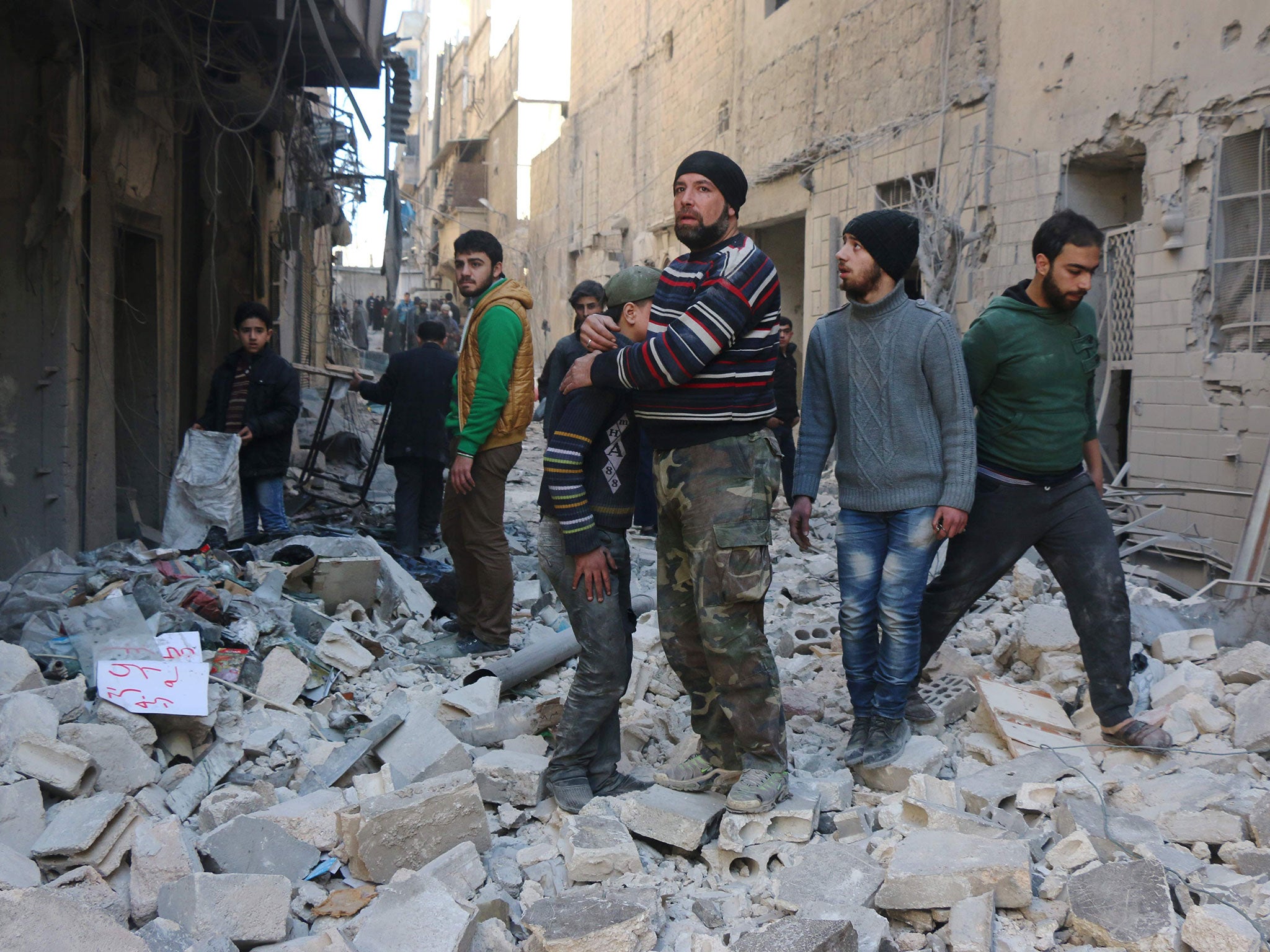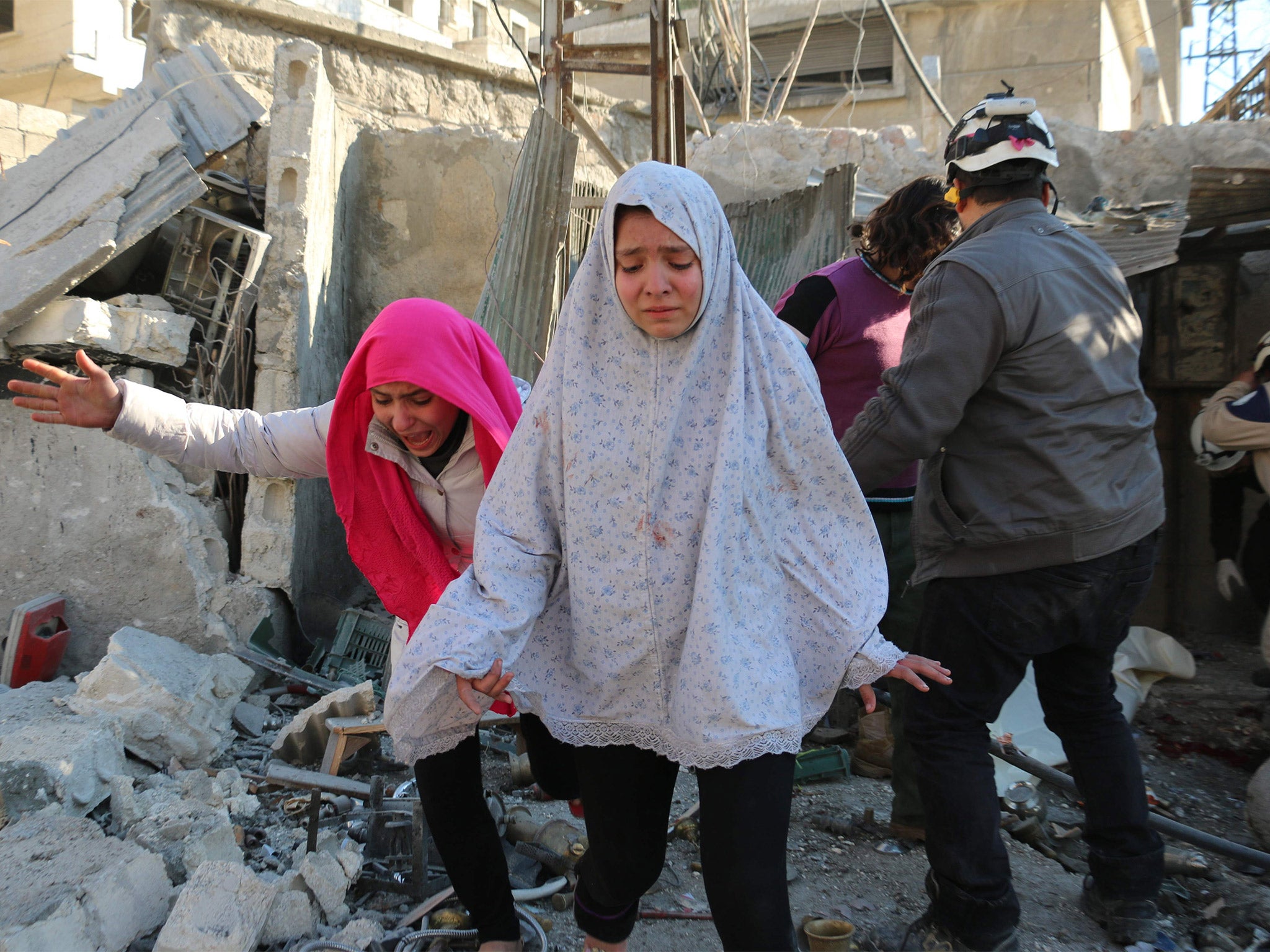Bashar al-Assad vows to retake whole of Syria by force despite ceasefire attempts
The US has backed anti-government rebels and more than a dozen countries are involved in the civil war

Your support helps us to tell the story
From reproductive rights to climate change to Big Tech, The Independent is on the ground when the story is developing. Whether it's investigating the financials of Elon Musk's pro-Trump PAC or producing our latest documentary, 'The A Word', which shines a light on the American women fighting for reproductive rights, we know how important it is to parse out the facts from the messaging.
At such a critical moment in US history, we need reporters on the ground. Your donation allows us to keep sending journalists to speak to both sides of the story.
The Independent is trusted by Americans across the entire political spectrum. And unlike many other quality news outlets, we choose not to lock Americans out of our reporting and analysis with paywalls. We believe quality journalism should be available to everyone, paid for by those who can afford it.
Your support makes all the difference.Bashar al-Assad has vowed to retake the whole of Syria by force, even as diplomats continue increasingly frail attempts to secure a lasting ceasefire.
In a rare interview, the Syrian President told the AFP news agency that he realised that the involvement of regional and international forces “means that the solution will take a long time and will incur a heavy price”.
He styled his opponents as “terrorists”, although Syrian forces have mainly been fighting anti-government rebels including the Free Syrian Army, who were initially supported and trained by the US.
Isis holds swathes of the country, as does a coalition of other Islamist groups including the al-Qaeda-affiliated Jabhat al-Nusra.
Assad told AFP his forces would fight to retake territory “without hesitation”, despite ongoing attempts at a fragile peace process.
He was speaking shortly before diplomats at the current Syria peace talks in Munich agreed a temporary “cessation of hostilities” in Syria's civil war within a week, although efforts to secure a lasting ceasefire fell short.
The deal appeared to be the result of a compromise between the US, which had wanted an immediate stop to fighting, and Russia, which had proposed a ceasefire to start on 1 March.

“The real test is whether or not all the parties honour those commitments and implement them,” John Kerry, the US Secretary of State, said in the early hours of Friday morning.
Discussions between the Syrian regime and anti-government rebels are due to re-start on 25 February after breaking down rapidly last month as Assad’s military made significant advances backed by Russian air strikes.
In recent weeks, government forces have closed in on Aleppo, Syria's largest city, and are now targeting the Free Syrian Army’s last remaining supply line.
Assad’s troops are also moving towards the north-eastern city of Idlib, which is held by Jaysh al-Fatah (Army of Conquest), the Islamist coalition including the al-Qaeda linked Jabhat al-Nusra, Ahrar ash-Sham and Jund al-Aqsa.

They are internationally recognised as terrorist groups and have not been invited to peace talks, but the US-led alliance has been at loggerheads with Syria, Russia and Iran over the inclusion of "moderate" rebels.
Russia’s air strikes, which started in September at Assad’s request, have been accused of “indiscriminately” targeting residential areas and killing countless civilians, while the US-led coalition’s bombing has concentrated on Isis territory.
The West considers Assad’s resignation as the key and perhaps only way to stop the Syrian war, but he has doggedly refused to go.
David Cameron has repeatedly said the Syrian President has no place in the country’s future and has called for peaceful transition to a new government, in line with Barack Obama, Francois Hollande and other leaders in the US-led international coalition.
Saudi Arabia’s foreign minister reinforced the sentiment today, saying his country’s objective was to remove Assad, which he considers a necessary step to defeat Isis and end the conflict.
The UK almost went to war with the Syrian regime in 2013 after evidence emerged of its use of chemical weapons against civilians, and reports of massacres, war crimes and human rights abuses continue.
The UN hopes to start delivering aid to some besieged areas in Syria within the next 24 hours but around 13.5 million people are in desperate need of food and basic supplies.
More than 250,000 people have been killed and around 11 million displaced in almost five years of fighting in Syria, which partly sparked the European refugee crisis.
Additional reporting by agencies
Join our commenting forum
Join thought-provoking conversations, follow other Independent readers and see their replies
Comments